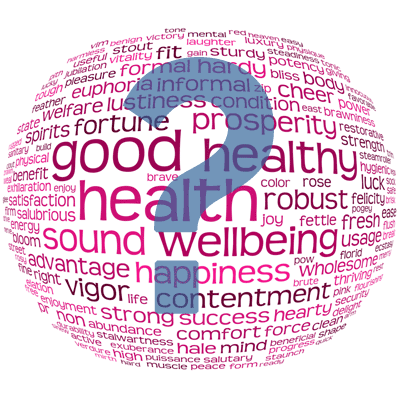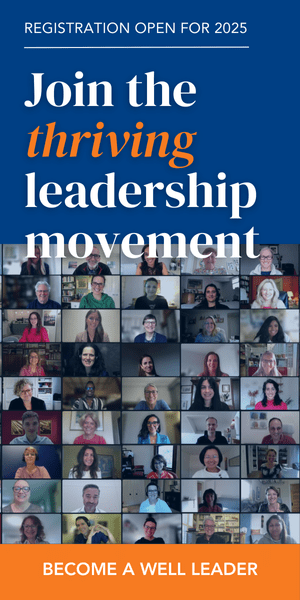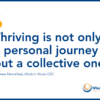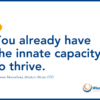In 1946, the World Health Organization (WHO) gave the world a new way to think about health. Instead of equating it with “not ill,” WHO said true health is “a state of complete physical, mental and social wellbeing and not merely the absence of disease or infirmity.” The value of this declaration was immeasurable. It provided a broader frame through which individuals, communities, companies and countries could advance initiatives for health improvement. And it became the go-to definition for how we thought not only about health, but also about wellness and wellbeing.
 Yet, the definition is out of sync with the times.
Yet, the definition is out of sync with the times.
In a 3-day “wellbeing accelerator” recently co-led by Wisdom Works for a global company, I asked the employees attending, “Who here has experienced complete physical, mental and social well-being?” (Ask yourself this question right now, and at the word “complete,” see if your response isn’t to laugh out loud!) As expected, no one raised a hand. (Not even me.) By not raising our hands, the WHO definition was in question.
Yes, physical health, plenty of rest, a meaningful job, financial security and good relationships are tried-and-true facilitators of a well life. But they don’t equal wellbeing. (Consider: your most physically ill friend might also be the one with the sunniest outlook.) We need a new way to define wellbeing so that it’s relevant in the ups and downs of contemporary life—whether that means in the midst of unexpected illness, the stress of a new job, financial pressures, shaky relationships and major transitions or whatever our crazy-busy world throws at us. And based on the astounding growth of health and wellness in our lifestyles and as a consumer market, we are obviously interested.
In talking with leaders from around the world, there’s no doubt that people everywhere share one thing: we are all in the middle of lives and situations that are ever changing. Recognizing this, Wisdom Works defines wellbeing from a different point of view: wellbeing is your ability to thrive – to bring your full energies and best self – given the situation you’re in. This means developing the everyday habits that allow you to show up for life and work fully engaged and alive.
What does this modern definition of wellbeing offer? It shifts our notions from wellbeing as an impossible aspiration in the future to an experience we can attain today. It also suggests that we can be active, creative agents of wellbeing in our own lives and the lives of others. Every aspect of our existence is fodder to help us get clearer about our choices for experiencing energy and vitality, meaning, achievement, connection and renewal. Now that’s a definition of wellbeing we all can embrace!
Read more about:
- The macro-trends shaping our human drive for wellbeing
- How Women and Gen Z are Leading the Trends in Wellbeing
- The art of redefining as a means to wellbeing







well done, Renee!
Thanks, Karen! From your point of view, anything you’d add to this definition of wellbeing?
Love this re-definition of wellbeing, Renee.
We have choices.
We either need to embrace the ups and downs and hurly burly lifestyles that modernity is serving up to us.
Or, we need to find ways of minimizing any negative impacts that life is having on us.
What is YOUR definition of wellbeing, Dan?